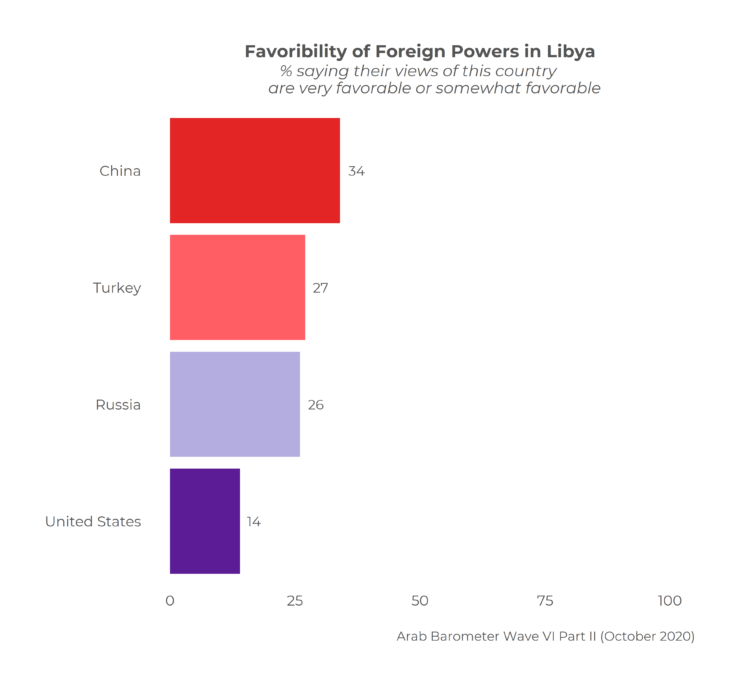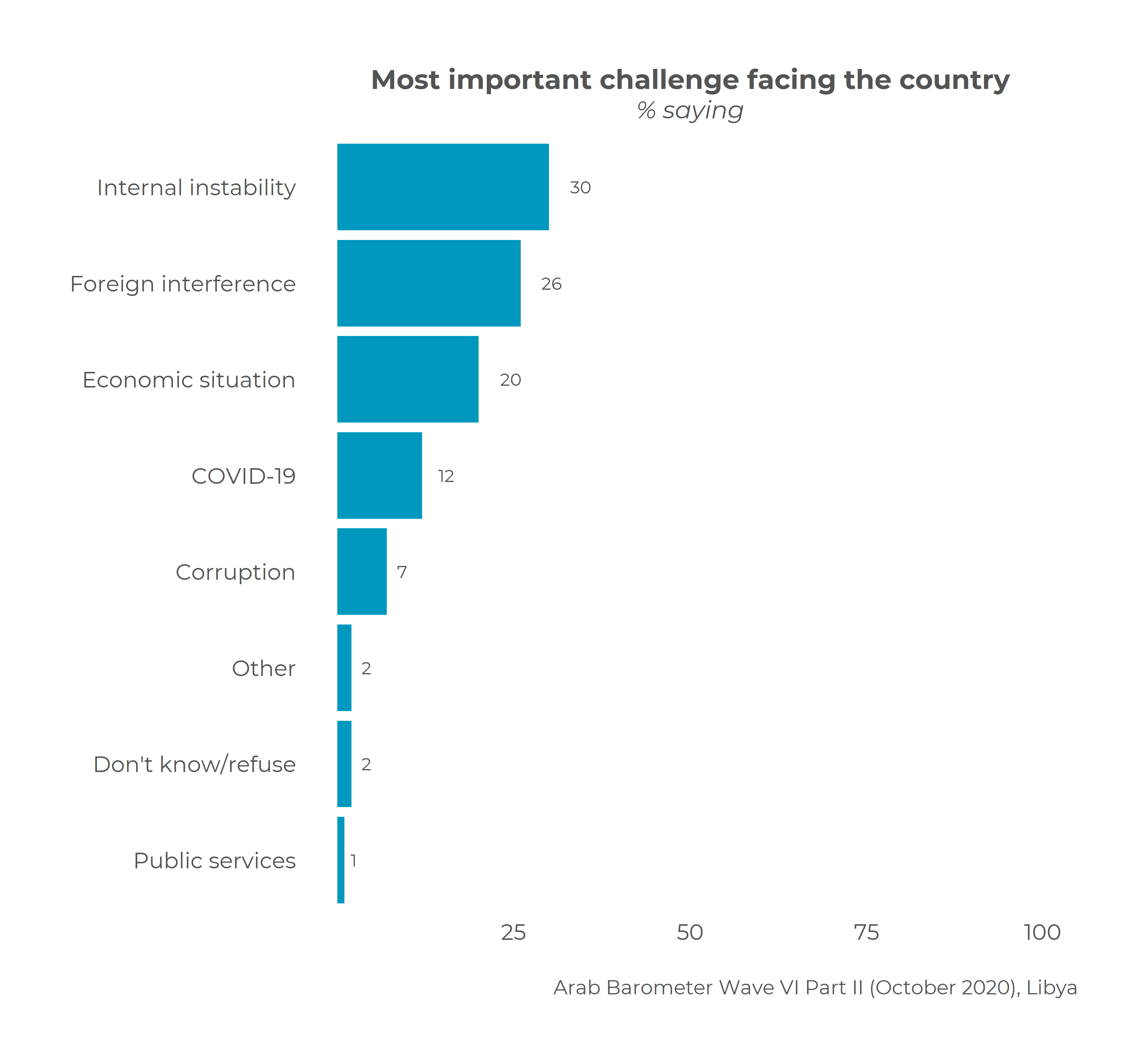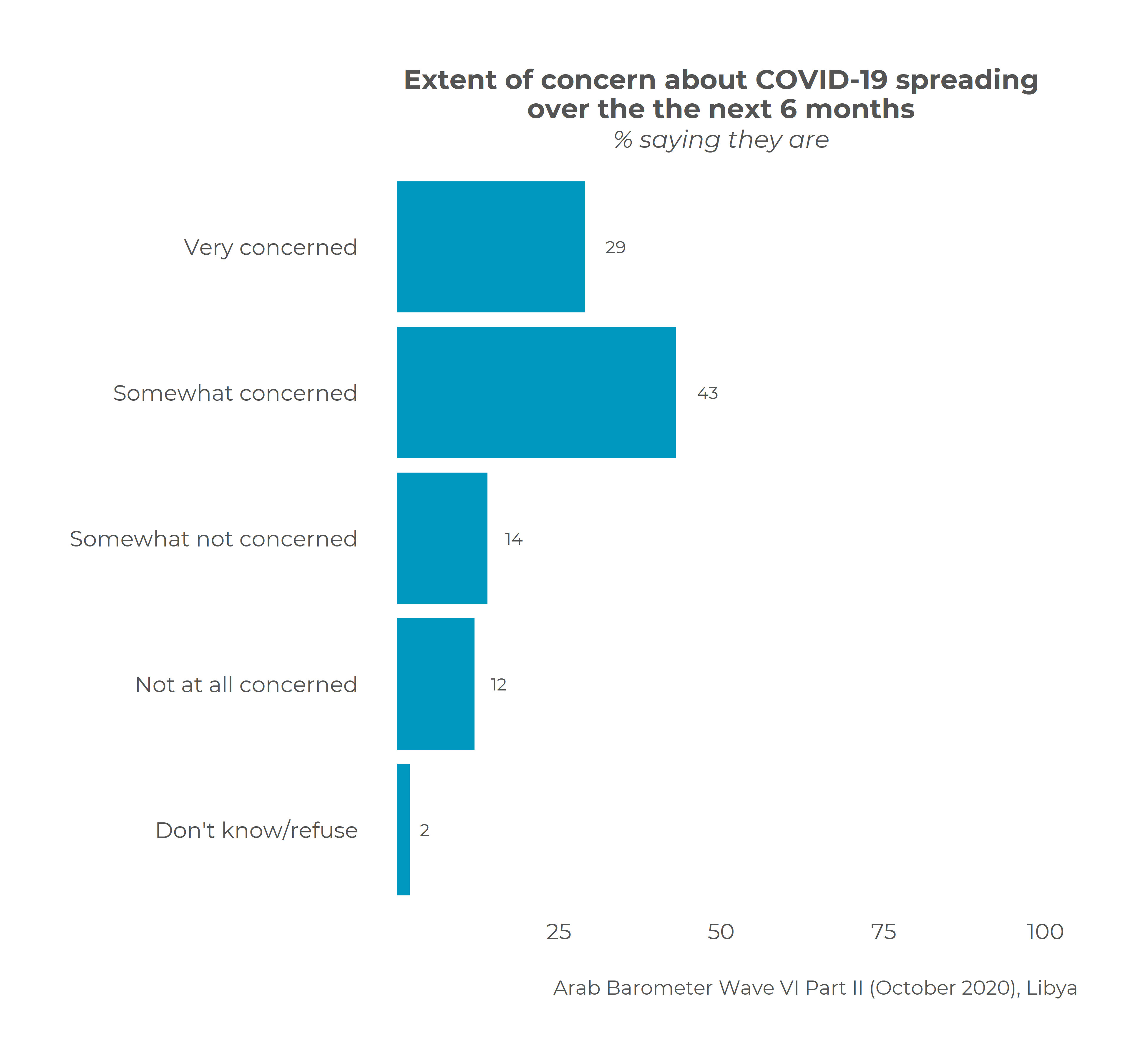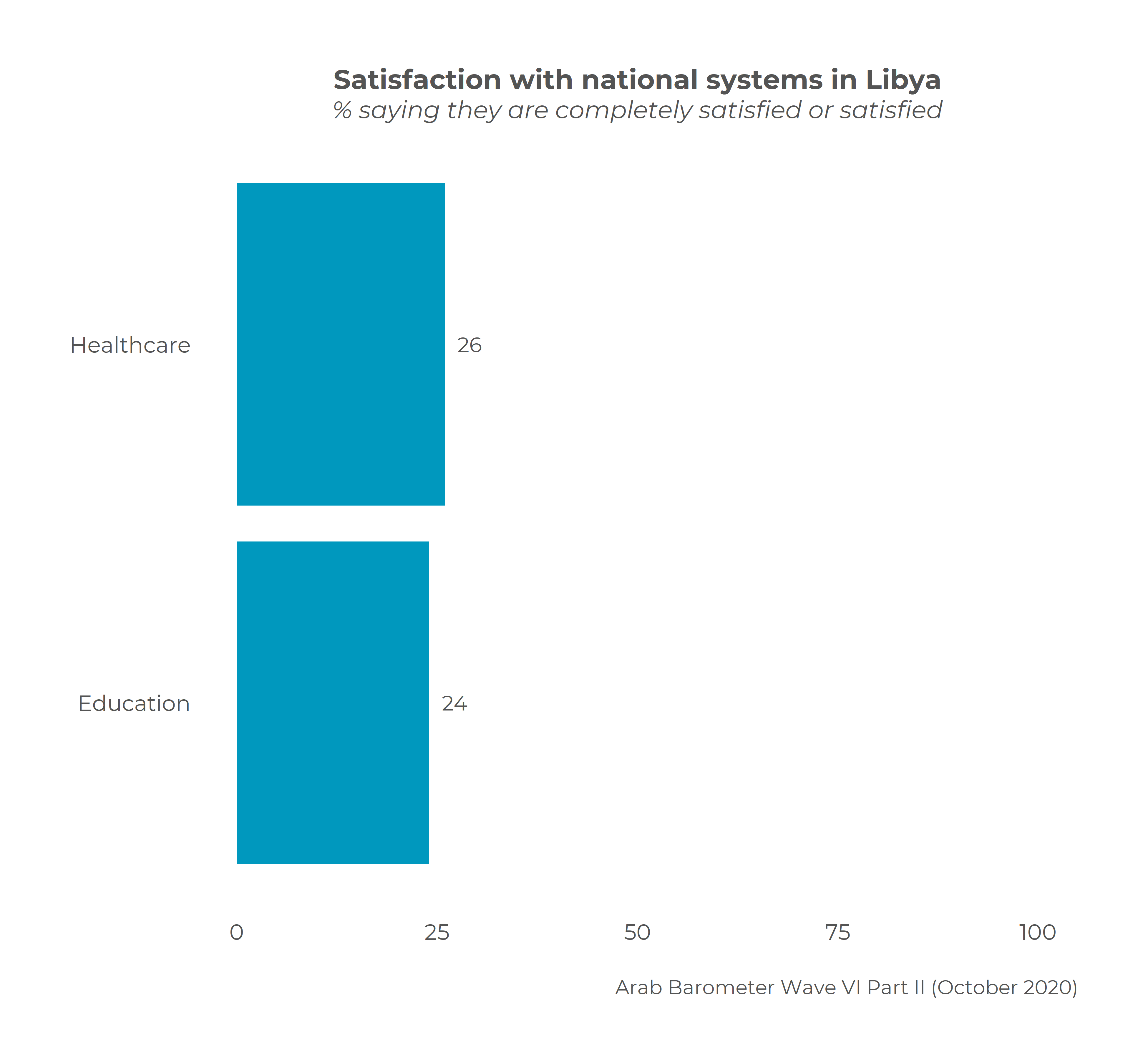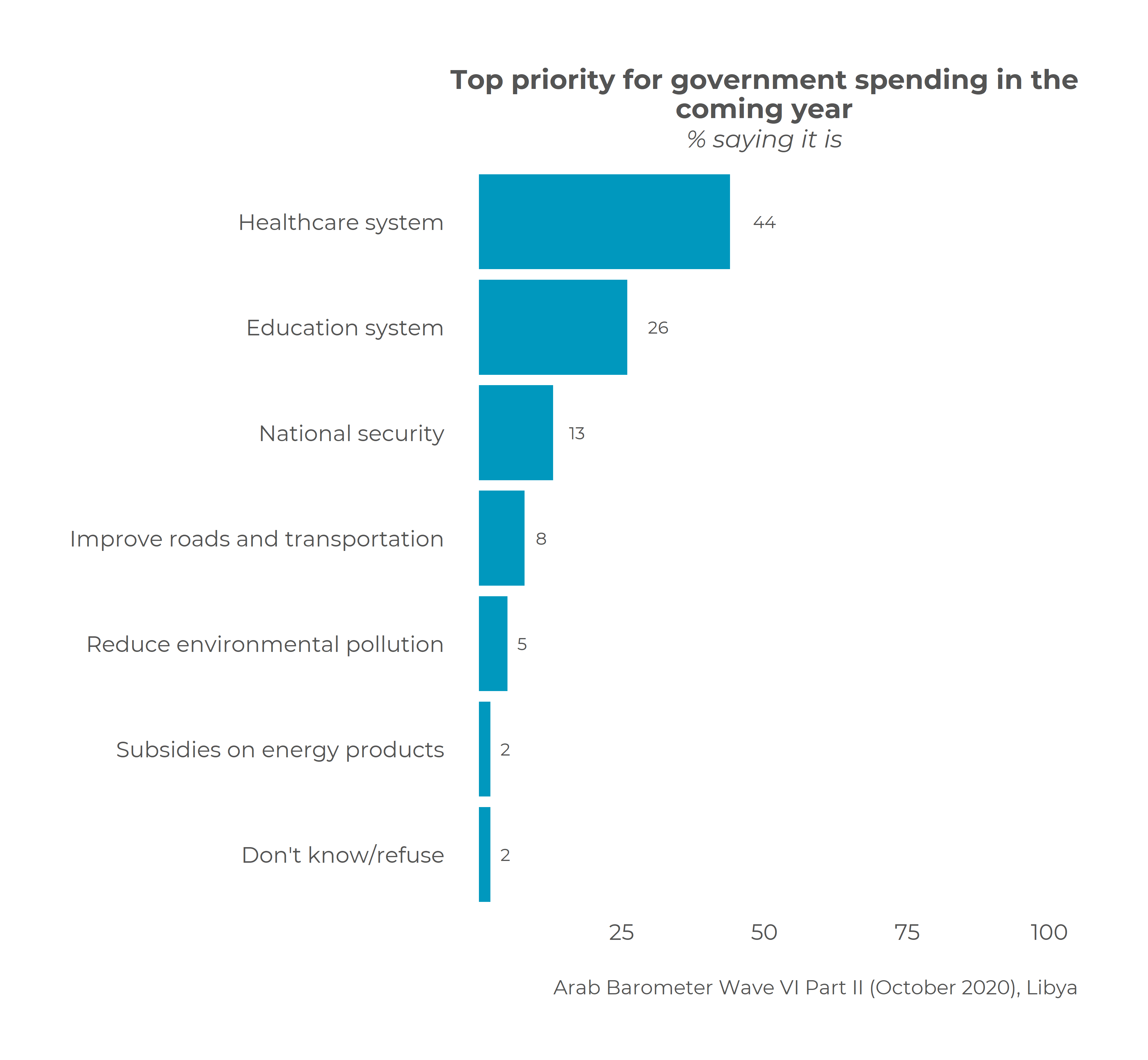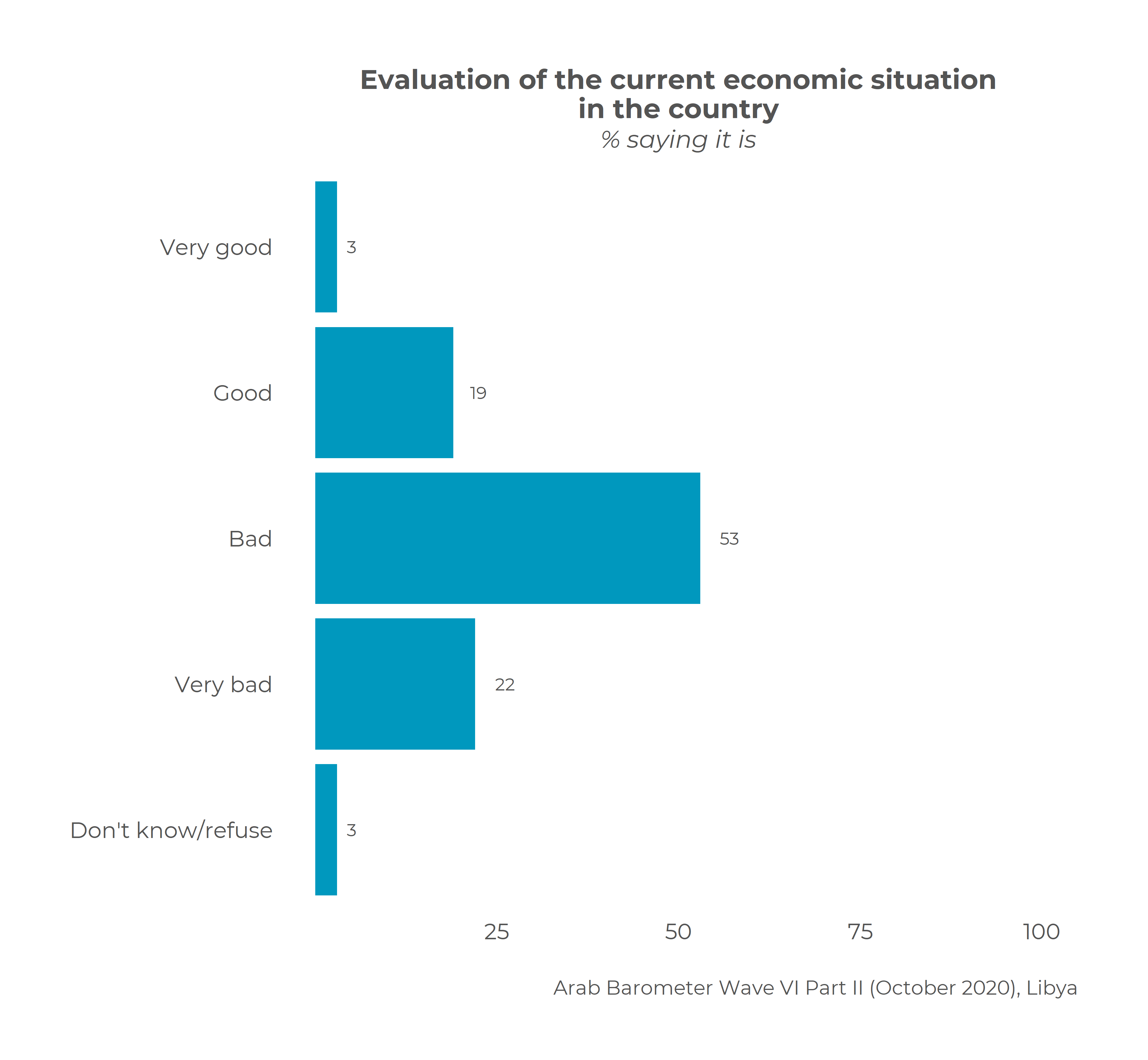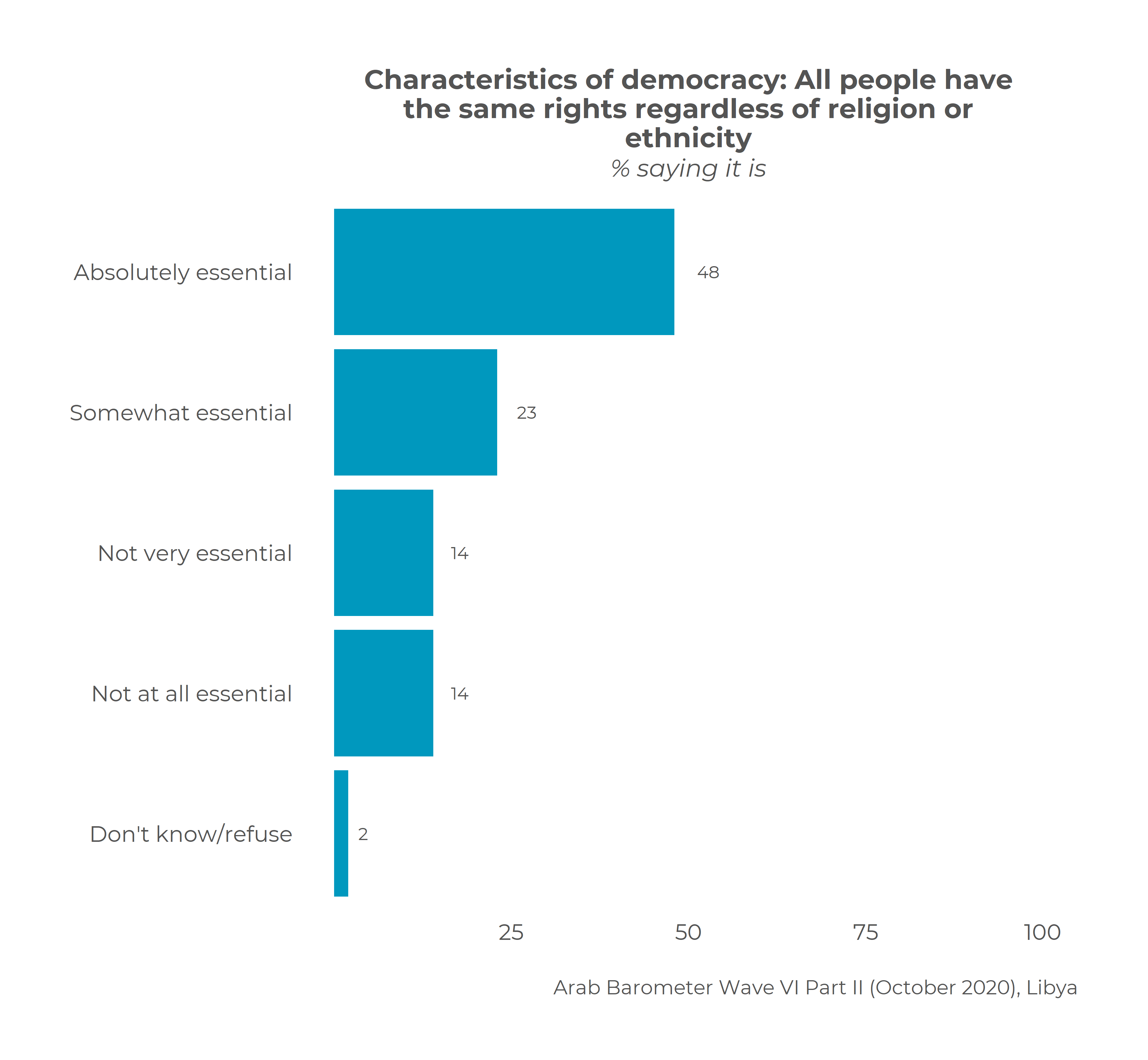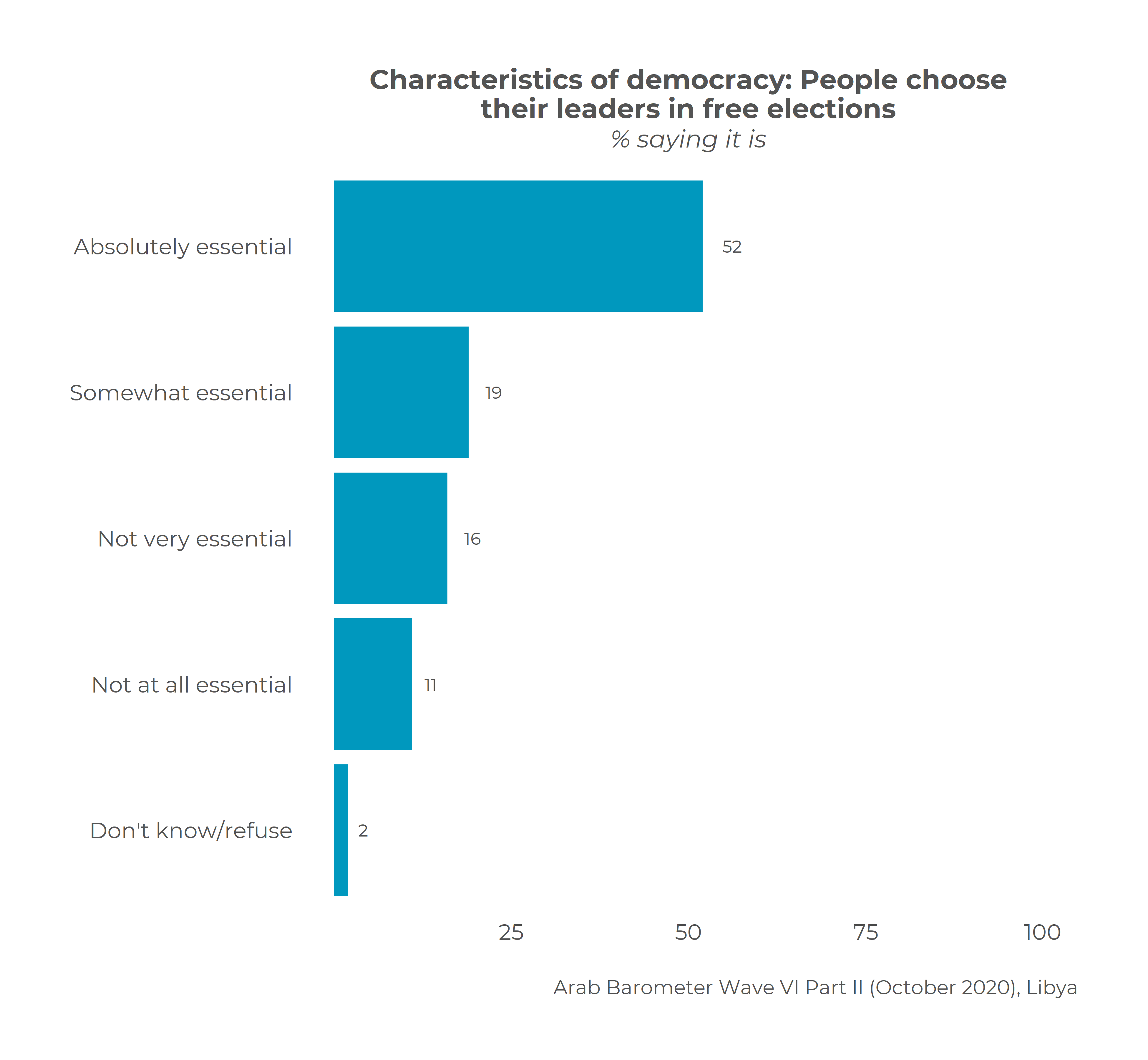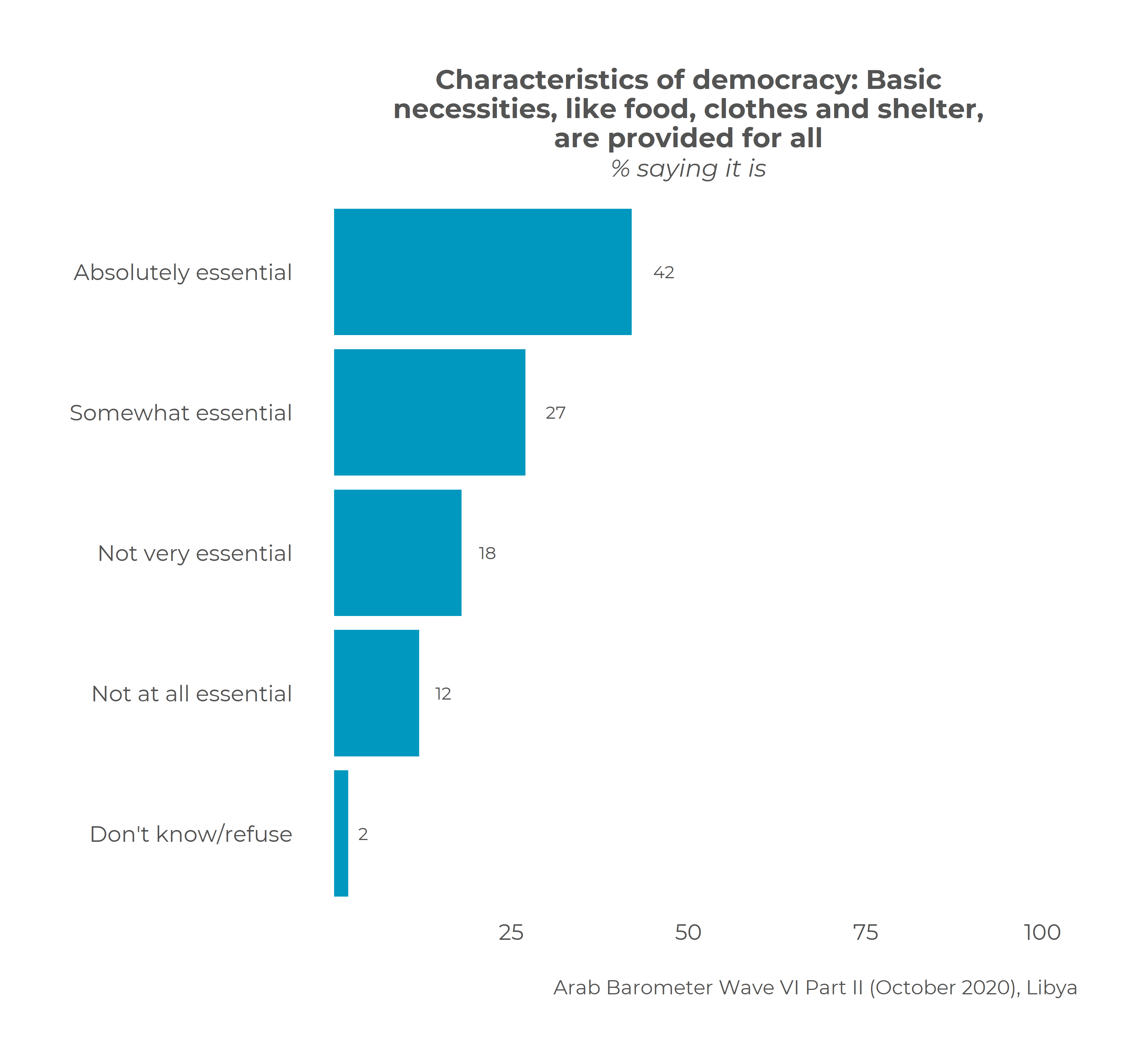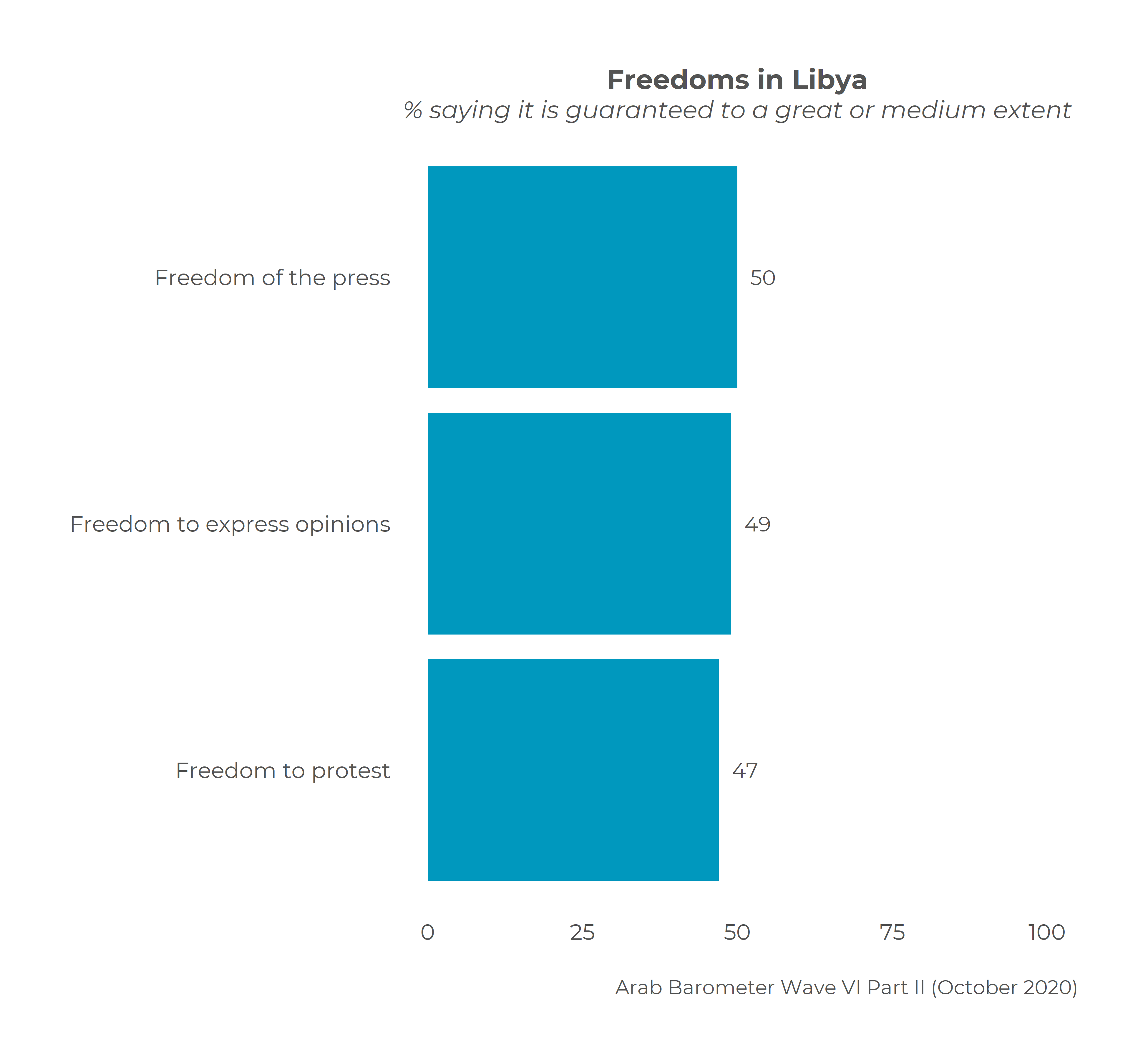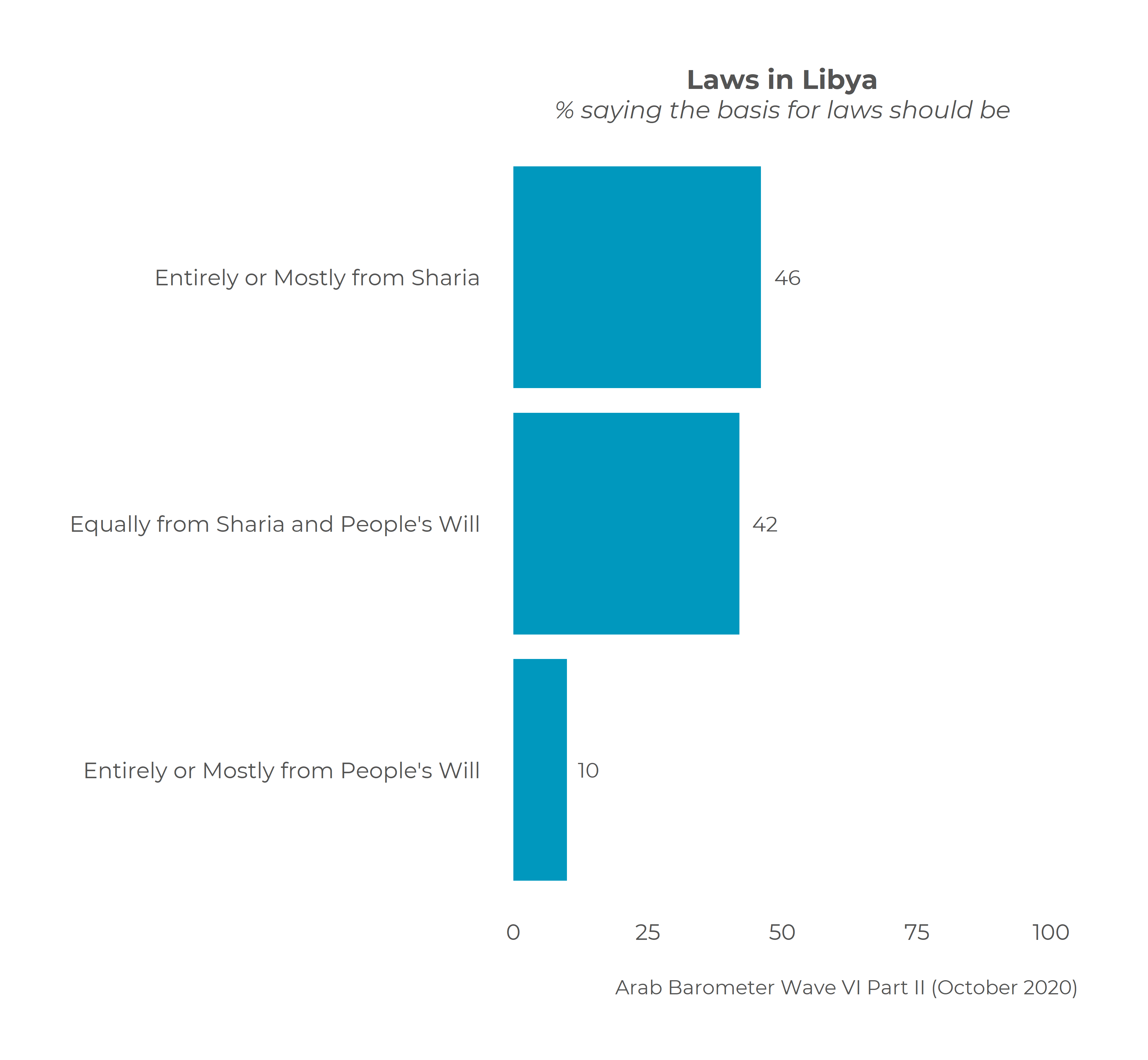Background
The following are among the key findings from a nationally-representative public opinion survey conducted in Libya by Arab Barometer in October 2020. The survey conducted 1008 phone interviews with randomly-selected Libyan citizens aged 18 or older. This unique survey captures the sentiments of Libyan citizens during the unprecedented times of the COVID-19 pandemic. The survey has a margin of error of ± 3 percent.
Key facts and figures
EVALUATION OF CURRENT SITUATION
- When asked about the most important challenge currently facing the country, three-in-ten Libyans say it is the internal instability while 26% cite foreign interference. The dire economic situation comes third with 20%, and the COVID19 threat is seen by only 12% as the most important challenge facing Libya.
- However, COVID19 remains a source of concern. The majority of Libyans (72%) say they are very concerned or somewhat concerned about the spread of the virus in the next 6 months.
- The concern over the spread of COVID19 in Libya is, in part, the result of a wide perception that the healthcare system is incapable of dealing with the pandemic. Only 26% of Libyans express satisfaction when asked about the healthcare system in the country. With the current health challenges, it is no surprise that 44% choose the healthcare system as their preferred top priority for government spending in the upcoming year.
- The education system fared even poorer. Only 24% say they are completely satisfied or satisfied with the education system; and 26% choose it as top priority for government spending in the upcoming year. It is worth noting that schools closed for extended periods during the pandemic as the country lacked the necessary infrastructure to switch to virtual learning.
- The ongoing conflict and divisions have worsened the economic situation in the country. Three-in-four Libyans say the economy is in a very bad or a bad state.
VIEWS ON DEMOCRACY
- Almost 10 years after the uprising that toppled the Gaddafi regime, Libyans continue to have strong views on democracy. 71% say that free elections are absolutely or somewhat essential part of democracy. It is noteworthy here that the latest general elections were held in June 2014 for the House of Representatives.
- The same percentage of Libyans say it is absolutely or somewhat essential that all people have the same rights regardless of religion or ethnicity.
- A slightly less portion (68%) say that the provision of basic necessities for all is absolutely or somewhat essential part of democracy.
- However, the reality of the situation is far from ideal. Only half say that freedom of the press is guaranteed to a great or a medium extent in the country. Freedom of expression and freedom to protest fared worse with 49% and 47%, respectively.
- When asked about the laws, 46% of Libyans say they should be entirely or mostly based on Sharia, while 42% say they should be equally based on Sharia and the will of the people. Only 1-in-10 say they should be based entirely or mostly on the will of the people.
VIEWS ON FOREIGN POWERS
- No global or regional power seems to enjoy large popularity among Libyans. Roughly only a third of Libyans express favorable views of China. It is worth noting that China is the country with least presence in Libya among the countries mentioned in the survey.
- Both Turkey and Russia have been interfering heavily in Libya over the course of the last decade, and especially since the 2019 attack on Tripoli by the Libyan Arab Armed Forces, supported by Russia, against the Government of National Accord, supported by Turkey. While 27% express favorable views of Turkey, a slightly smaller percentage (26%) say they have very or somewhat favorable views of Russia.
- The United States came last with only 14% say their views of the US are favorable. This perhaps has to do, at least in part, with President Trump’s travel ban that targeted Libya, among a few other countries in 2017.
